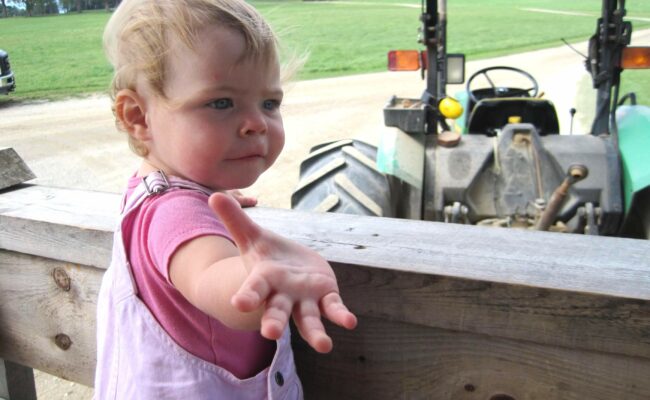
Guest blog by Elliot Regenstein, Foresight Law and Policy and Nasha Patel, Watershed Advisors
As part of the Vermont Child Care and Early Childhood Education Systems Analysis, Building Bright Futures supported Foresight Law and Policy & Watershed Advisors in disseminating a survey for stakeholders to indicate their preferred governance option moving forward. The options included:
- Keep the structural status quo;
- Consolidate child care and early education functions into an existing agency – either the Agency of Education or the Agency of Human Services; or
- Create some sort of new agency or unit focused on early childhood¹.
The survey generated 326 responses. While a diverse range of stakeholders (referred to as “the field” throughout) shared their opinions, the largest category of respondents was from the early childhood education sector (172 responses). Other well-represented groups included Pre-K-12 education (71), cross-sector professionals (37), state agency professionals (27), advocates (26), and parents (26). (Respondents were allowed to identify in more than one category.)

There were a few major takeaways from the survey:
- Survey respondents are opposed to maintaining the status quo. In fact, 176 respondents (54%) identified the status quo as their least preferred option, with another 59 (18%) ranking it next-to-last. By contrast, only 48 respondents (15%) listed the status quo as one of their top two options.
- Survey respondents want to try a new structure, and not simply consolidate functions into an existing agency. An overwhelming 191 respondents (59%) listed a new agency as their top choice, with another 50 (15%) listing it as their second choice.
- 66 respondent’s (20%) top choice was consolidation into AOE. While 111 respondents (34%) said that consolidation into AOE was their least preferred option, adding comments expressing strong opposition to such a move.
- Consolidation into AHS was the option that received the fewest number of first choice votes, but it received a substantial number of second and third choice votes.
In previously surveying the early childhood landscape, we noted that processes like the Systems Analysis tend to focus on the flaws in state government, and that these flaws are structural; these results should not necessarily be read as a negative reflection on the current leaders in state government. Indeed, many of the comments spoke to the structural nature of Vermont’s governance problems, emphasizing how hard it is to properly administer Vermont’s early childhood system in the current structure.
Ultimately the Administration and General Assembly will be responsible for setting Vermont’s path forward, and these survey results represent an opportunity for leaders in state government. While these survey results are unscientific, they reflect an emerging narrative that the early childhood field (including public and private partners) wants meaningful change². That creates an action imperative to which the Administration and General Assembly can be responsive.
These results also reflect a larger sense in the field that neither AHS nor AOE is positioned to be successful in managing the entire range of child care and early education programs that the state currently administers. Again, that is not necessarily a commentary on those agencies’ current leadership, but the product of deep structural forces that have emerged in Vermont over many years.
While the Governor has appropriately been seeking to develop a “cradle to career” education continuum, the results of the survey suggest that the best way to do that is not necessarily to consolidate early childhood governance within AOE. The best way to create a strong cradle to career system may be to have early childhood, K-12, and higher education each overseen by a governmental unit with deep expertise in that age span – and close connections to other oversight agencies.
We are grateful to the early childhood community for its active participation in the survey, and indeed the entire Systems Analysis process. Next month our draft Systems Analysis will offer our thoughts on moving toward a better system – thoughts that draw on our many interviews with Vermont stakeholders, and these survey results. In the coming weeks we look forward to additional stakeholder feedback, and to continuing this important conversation.
The goal of the ECSA is to examine systems that govern and administer childcare and early childhood education and use this information to make recommendations for Vermont’s approaches to improve functionality of services and systems that will promote optimal outcomes for children and families.
We recently published two documents based on the information we gathered from early childhood partners that are linked below for additional context.
1 Vermont Child Care and Early Childhood Education Systems Analysis: Governance Options, March 2022
2 Vermont Child Care and Early Childhood Education Systems Analysis: Major Themes, February 2022



